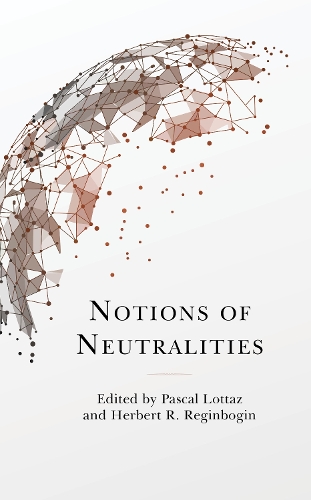
Notions of Neutralities
(Hardback)
Publishing Details
Notions of Neutralities
By (Author) Pascal Lottaz
Edited by Herbert R. Reginbogin
Contributions by Oliver Bange
Contributions by Elizabeth Chadwick
Contributions by Tvrtko Jakovina
Contributions by Wim Klinkert
Contributions by Pascal Lottaz
Contributions by Leos Mller
Contributions by Stephen C. Neff
Contributions by David X. Noack
Bloomsbury Publishing PLC
Lexington Books
16th November 2018
United States
Classifications
Professional and Scholarly
Non Fiction
International relations
341.64
Physical Properties
Hardback
328
Width 159mm, Height 231mm, Spine 24mm
599g
Description
Neutrality serves different purposes during times of war and peace. Notions of Neutralities portrays those historical challenges that neutrals faced, and are still facing, to maintain some form of economic stability and political order as chaos and wars rage. Neutrals are exposed to existential issues and questions of civil-society, international politics, and morality, in a world defiant to principles of universal peace. Every age has its own armed conflicts and while the questions they raise are often the same, the answers are different because the international word order changes. Is neutrality justifiable even when the humanity of civilization is at risk as in the Second World War or the wars of the post-Cold War era Can those who refuse the call to arms still act by providing humanitarian services to contain the impact of war or, on the contrary, are neutrals shut-off from global politics mere weaklings that suffer what they must" This book addresses such questions through an interdisciplinary scholarship by some of the worlds foremost experts on neutrality. Twelve chapters tackle different but profound aspects of the concept over a span of five hundred years. They succinctly show the evolution of international norms in the context of war and peace. What is more, the essays portray fundamental categories of thinking about a variety of neutralities that the international system has produced in the past and present. The authors discuss the complexities of neutrality, providing a new and refreshing understanding of international relations and security for the past as well as for the multipolar world of the twenty-first century.
Reviews
The book demonstrates convincingly that the notion of neutrality only as a phenomenon and a part of the Cold War is false in many ways. The concept of neutrality has proven time and again that it can adapt to new situations. Neutrality was never monolithic but rather a fluid and flexible concept. This book captures a wide spectrum of neutrality. It stretches from a passive and isolationist stance at one end, to an engaged and interventionist approach at the other. Neutrality in the twenty-first century does not mean to stay out but to engage. It is not about disengagement from world affairs. It is about active engagement in the international systems, and involvement in diplomacy, politics, economics, and humanitarian aspects; neutral states participate in crisis-management operations and conflict avoidance around the globe. -- Heinz Grtner, University of Vienna
The concept of neutrality has been around for more than 500 years in international diplomatic circles. Switzerland may be the worlds most famous and one of the few widely known examples of state neutrality. Yet, the actual meaning and practical implications of neutrality, both historically and in the international politics of the 21st Century, are poorly understood by most policy makers and rarely examined by serious international relations scholars. This superb, newly edited volume from Pascal Lottaz and Herbert R. Reginbogin makes a major contribution toward filling this gap and is a must-read for all serious students and practioners of international relations today. -- Bruce M. Bagley, University of Miami
As Thucydides tells us, for the Melians, neutrality was the way of the weak; for Elie Wiesel it is the refuge of the immoral. In examining this topic through a modern lens, this book admirably resurrects the concept of neutrality, a branch of international relations and international law, one that has fallen into the recesses of the American intellectual mind. The books chapters together trace the varied intellectual doctrines of neutrality in the development of international law. The 13 essays include papers on maritime neutrality, Nordic conceptions of neutrality, Dutch conceptions of neutrality, the experience of Japan and the Soviet Union as neutrals, the Vatican as neutral, the non-aligned movement, and the experience of the Board of International Settlement (BIS) during World War II. Reginbogin, Lottaz, and their colleagues show how the concept of neutrality can be used to advance both collective security and cultural human rights norms. It is a book that should find its place on international relations, history, international law, and social ethics bookshelves. -- Marshall J. Breger, The Catholic University of America
Author Bio
Pascal Lottaz teaches at Temple University, Japan Campus. Herbert R. Reginbogin teaches at Touro College.
